SEARCH FOR HEALING AND JUSTICE
A ceremony helps families repatriate spirits of loved ones murdered by apartheid cops
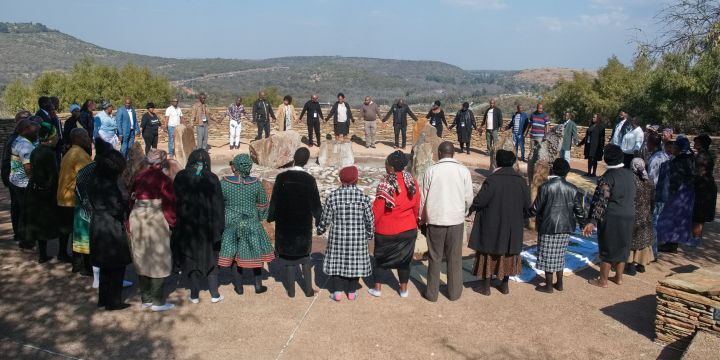
In the 1980s, several activists were detained, tortured and killed, far away from their homes – then their bodies were blown apart by explosives or burnt. Their devastated families have finally been given some closure.
Thirty-five years have passed since the night residents of Mmukubyane in North West heard an explosion on the outskirts of their village – but memories of the aftermath of the blast still haunt elderly residents who witnessed the grim scene.
“We heard the explosion, it sounded like the thunder, gugugugugu. In fact, I thought it was raining,” Eric Mpete recalled.
The blast was the result of the deadly work of members of the Northern Transvaal Security Branch. On or around 16 June 1987, they abducted two youth activists, Prompana Matthews Lerutla and Jeffrey Sibaya, from Mamelodi.
They drove them 125km northwards to Mmukubyane, which fell under the Bophuthatswana homeland administration. There, at a deserted spot on the outskirts of the village, they tortured the duo, who were aged only 17 and 18. They then strangled them to death with a car seatbelt before placing explosives on their bodies and detonating them.
“We saw pieces of flesh hanging from tree branches. We saw their clothes hanging from the trees. We didn’t see the bodies,” Mpete said.
“It is something that has troubled me for a long time, especially because we didn’t know the identity of these people,” he said.
On 28 July, the senior citizen joined family members of the slain activists and justice and government officials in participating in a ceremony to repatriate their spirits.
Lerutla and Sibaya’s remains are missing. According to the Missing Persons Task Team (MPTT), tasked with investigating the apartheid-era killing of activists, records indicate their remains were taken to the government mortuary in Ga-Rankuwa, 82km away.
The record trail leads to Winterveldt Cemetery, where it is confirmed they were buried as paupers. In the past 15 years, the MPTT has conducted an extensive search of the cemetery, hoping to find the remains of Lerutla and Sibaya.
Digging up 400 graves
MPTT head Madeleine Fullard said the exercise entailed digging up about 400 graves, which all yielded no results. To further complicate the search, some records have been lost and tombstones have been erected over old graves, which led to tampering with grave numbers and changes to the general layout of the cemetery.
“These cases of activists like this invoke deep emotions. One may even ask a complicated question: where is justice in this?” Minister of Justice and Correctional Services Ronald Lamola said at the conclusion of a symbolic burial ceremony for the activists at Freedom Park on 28 July.
The ceremony was also for two other activists, Samuel Ledwaba and Oupa Mohale, who suffered a similar fate at the hands of the same unit, the Northern Transvaal Security Branch.
Mohale, also from Mamelodi, was abducted, tortured and then strangled to death with a coat hanger.
The apartheid death squad members then placed his body in a field and set it alight using a tyre to make it appear as if he had been killed by local comrades.
Ledwaba, who was 17 years old, was abducted on 12 July 1986. He was tortured and strangled, and explosives were tied to his body and detonated at a deserted spot near Kgomo-Kgomo village.
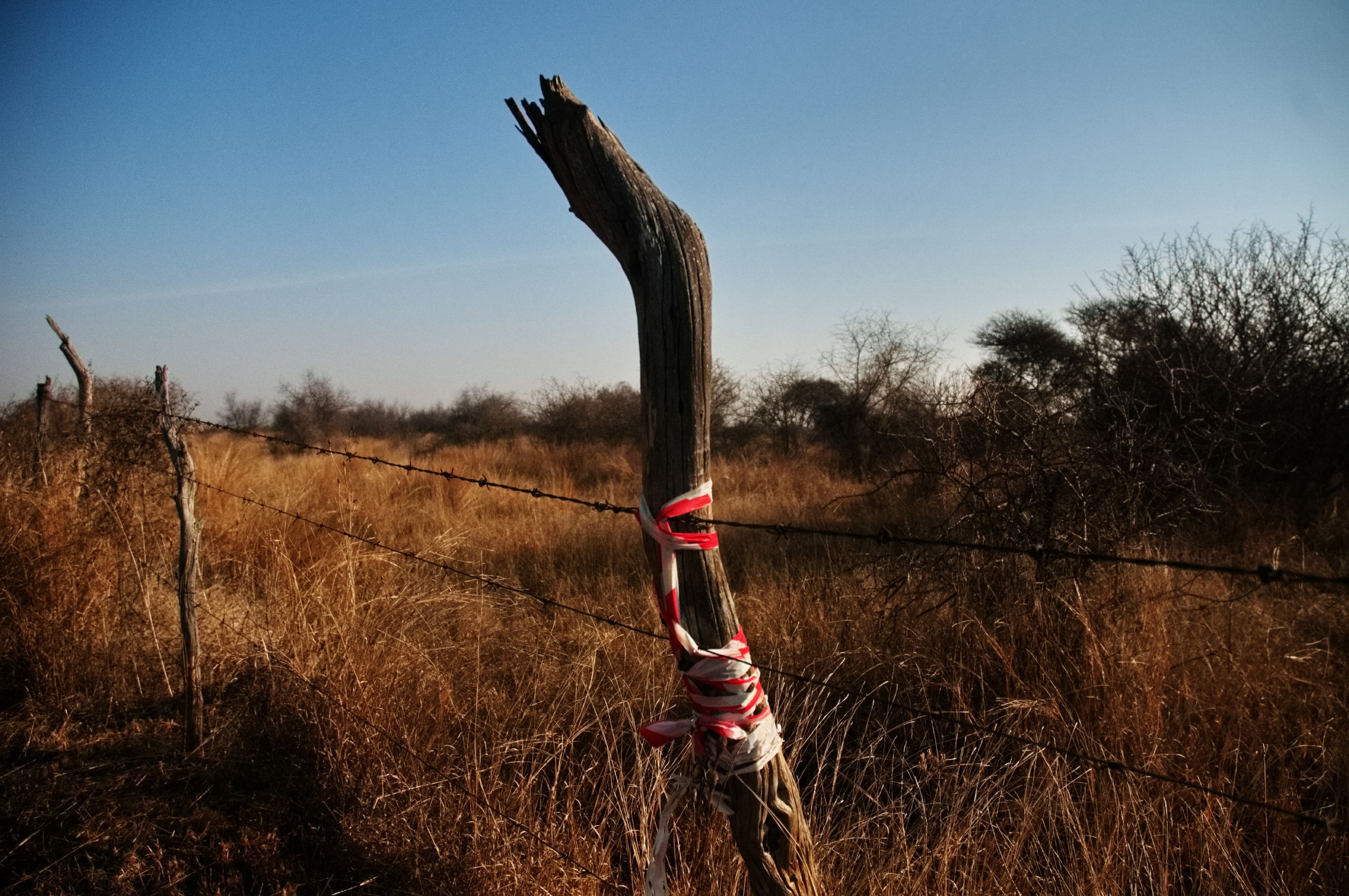
A piece of danger tape marks the spot where political activist Samuel Ledwaba was killed by apartheid police near Kgomo Kgomo village in the 1980s. (Photo: Lucas Ledwaba / Mukurukuru Media)
The murder scene was about 35km from where Sibaya and Lerutla were killed a year later. The killings happened within a 60km radius in rural villages that were part of the Bophuthatswana homeland administration.
It is suspected the killers chose these spots to frustrate efforts to find the bodies because no missing people had been reported in that area and the activists were not known in those parts.
On 28 July, at the site Mmukubyane locals have known since the incident as ko bomong (place of the bomb), Samuel Lerutla knelt on a grass mat next to his sister Fonta to perform rites aimed at communicating with Prompana’s spirit so it could be repatriated to Freedom Park and home for burial.
Hovering around the site
Under the guidance of four women spiritual healers, with bystanders singing freedom songs, they were urged to speak from the heart about their long search for their little brother and to plead with his spirit to be free and come home.
One of the healers said she could see Prompana hovering around the site, but he appeared angry. He asked for water but was ready to go home.
She commanded that he be given water to drink. The siblings took turns emptying a bowl of clean water onto the ground.
“I am your sister Fonta. You left us while we were still young and we have grown now. Prompana, come with us, my brother, and rest. Our parents died with broken hearts not knowing where you are. Come with us so your spirit can be at peace,” she pleaded.
The same process was followed at the sites where Ledwaba and Mohale met their brutal deaths. Tears ran down faces that have seen much suffering. Siblings who had watched parents wither away, not knowing what had become of their children, spoke of how mothers and fathers died with broken hearts.
The healers threw divining bones on grass mats and reported that the spirits agreed to go home. The bones revealed the anxiety of the restless spirits, the frustration of being left to wander for years in a strange land.
“Come home with us, Bonginkosi, come home; don’t trouble people on this road. We are taking you home now,” Ledwaba’s mother pleaded with her son’s spirit.
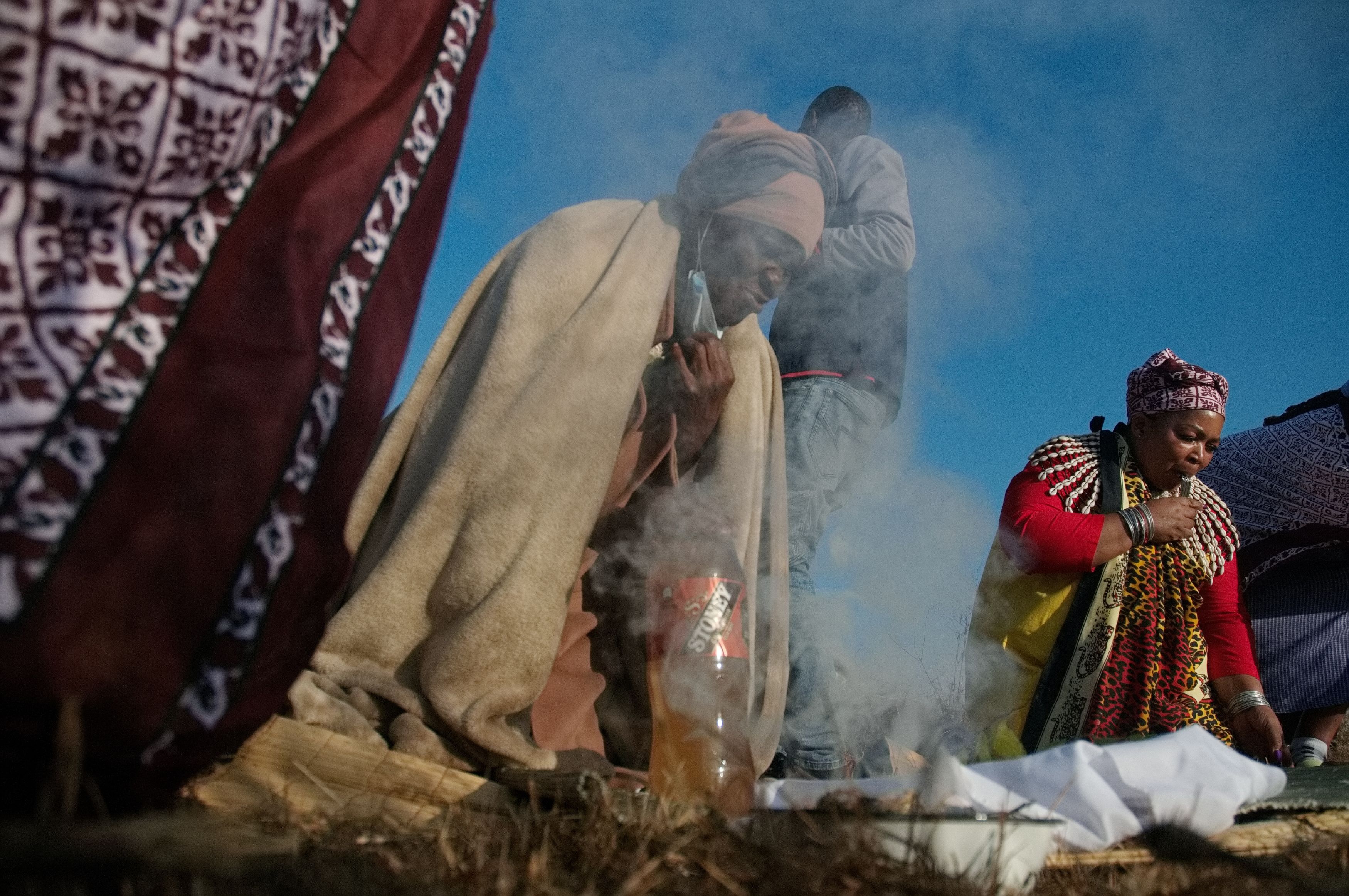
Joyce Ledwaba performs rites to repatriate the spirit of her son Samuel, who was abducted and killed by apartheid police in the 1980s. (Photo: Lucas Ledwaba/Mukurukuru Media)
The MPTT’s scrutiny of the case docket about the murder scene revealed gory details. Ledwaba’s upper body had been completely blown off; his shoes were still on his feet but the rest of his body had been destroyed by the force of the explosives.
Later that afternoon, at the Isivivane Sanctuary at Freedom Park in Pretoria, the city where the killing of the activists was probably planned, the families joined healers on the final leg of the journey – the symbolic burial of their loved ones.
A representative for each family carried a branch of the umlahlankosi (buffalo thorn tree), which symbolises the spirit of the deceased. After dragging the branch around the scene of the murders to signify collection of the spirit, it was draped in a white cloth.
The cloth, which signifies purity, was then covered with a grass mat, which represents a resting place or coffin.
Samuel Lerutla was emotionally drained and physically exhausted after a long day.
“My mother was deeply affected [by the disappearance]. We [siblings] were also affected. He [Prompana] was the youngest. When we were working we were ensuring that he lacked nothing in school. Now he was gone. My mother got very sick. She was in and out of the hospital. We searched for him until we gave up and our mother died,” he said.
Thabo Ledwaba reflected that the ceremony had helped him to edge closer towards healing.
“At least for us now, even though we still don’t know where his remains are, we have repatriated his spirit. That helps me find some closure,” he said.
But his mother, Joyce Ledwaba, who is sickly and frail, partly as a result of the long search for her son, remains troubled.
“My mother wants the perpetrators arrested. In my heart I have forgiven them [the killers], but I will never forget,” Thabo said.
To honour his spirit
The pain inflicted upon the families by the killings transcends generations. Sibaya’s nephew, Surprise Moriri, was not yet born when his uncle was killed.
His grandmother used to tell him about her lost son Jeffrey and even used to call Moriri by his name.
“She used to tell me that I remind her of her son. I had to be here today to honour his spirit. I need to thank all the people who took their time to go away from their family to investigate. At least we know what really happened and may his soul and those of others rest in peace … My grandmother died not knowing what happened to her son,” he said.
Before she died in 2010, Mamoriri Johanna Lerutla told her adopted son, whom she named after her lost child Prompana, that she was deeply worried about not knowing what had happened to him.
“She used to say to me, ‘My son is gone. I don’t know even today whether he is alive or dead’. Those words are haunting me always. Even today I don’t think I have found closure,” he said.
Northern Transvaal Security Branch members “Sakkie” Crafford, Brigadier JH Cronjé, Captain J Hechter and Captain Paul Janse van Vuuren applied for amnesty for the murder and torture of the activists. Vlakplaas agent Joe Mamasela, who was also implicated in the killings, did not apply for amnesty.
The Truth and Reconciliation Commission (TRC) final report throws some light on events leading to Sibaya’s murder.
“In 1987 ANC activist Jeffrey Sibiya [sic] was allegedly involved in petrol bomb attacks, arson and intimidation against the SAP and opponents of the ANC in Mamelodi.
“Paul van Vuuren tried unsuccessfully to persuade Sibiya [Sibaya] to become an informer. Information was received that Sibiya [Sibaya] was planning an attack on Van Vuuren and Hechter, and a decision was taken to kill him.
“[Joe] Mamasela went to Mamelodi to fetch Sibiya [Sibaya] and another person, Mpho, under the pretence that he was to take them across the border. Captain Jacques Hechter, Sarel du Plessis Crafford and Paul van Vuuren, among others, waited in a minibus outside Mamelodi.
“They [the activists] were taken to a place five kilometres north of Pienaar’s River. There the activists were interrogated, kicked, beaten and were strangulated with wire. Both were killed during interrogation. In order to conceal the evidence, the bodies were destroyed using a landmine somewhere in Bophuthatswana.”
Lamola said the quest for justice for several such cases had not ceased and that the department’s TRC Unit had already brought several cases for prosecution.
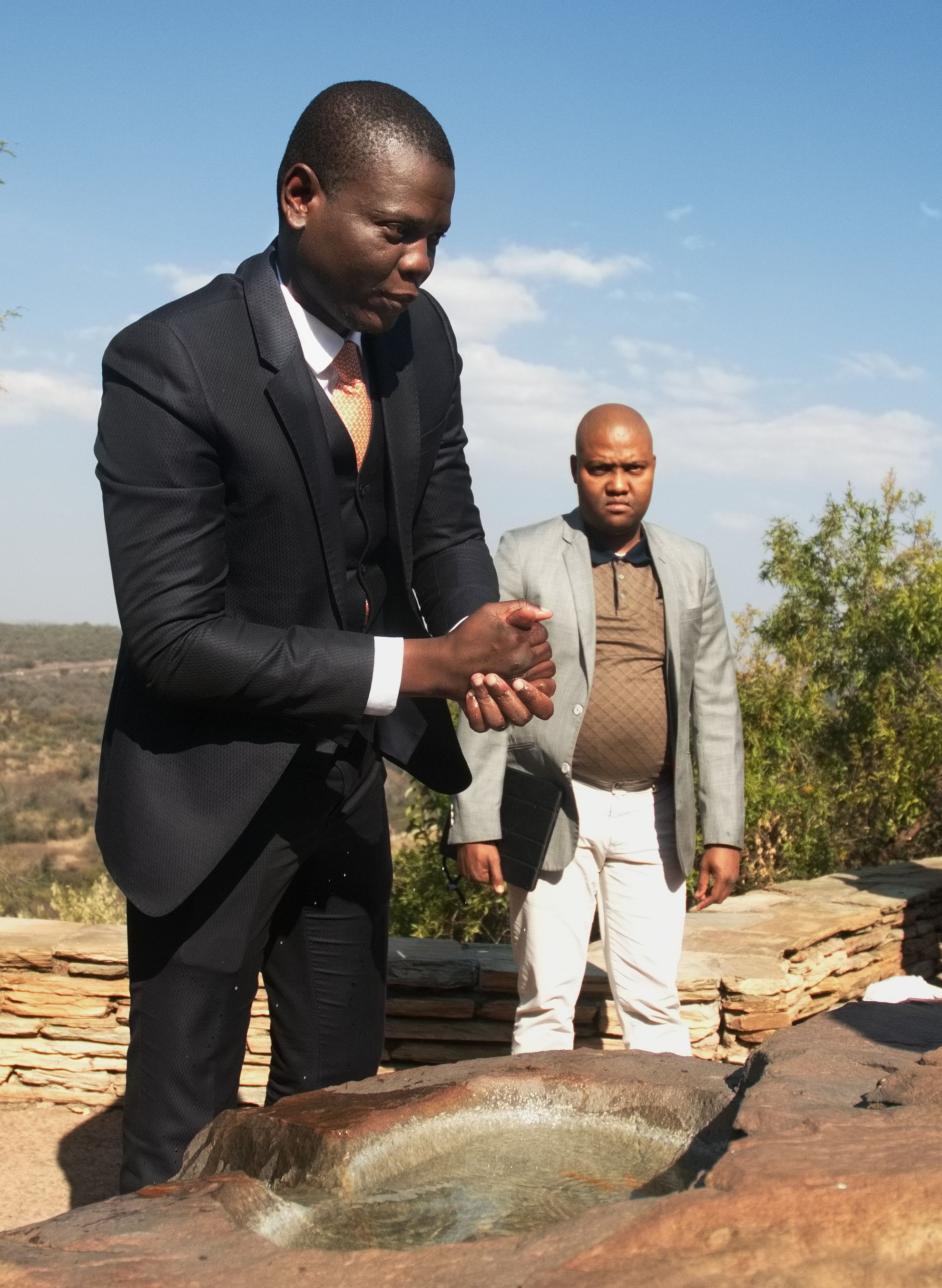
Minister of Justice and Correctional Services Ronald Lamola washes his hands after taking part in the symbolic repatriation and burial of the spirits of four activists who were killed by apartheid death squads in the 1980s. (Photo: Lucas Ledwaba / Mukurukuru Media)
In January, the National Prosecuting Authority (NPA) announced that it had registered 64 new cases emanating from the TRC for investigation. The NPA further announced that 25 prosecutors and 40 investigators had been appointed within its various divisions to deal specifically with TRC matters.
Lamola said the department was “dedicated to ensure that families find closure and they find their loved ones. We know that it may not be enough, we can’t bring them back, but the fact is that government recognises that the families must be able to find healing through going through this journey.” DM/Mukurukuru Media
This story first appeared in our weekly Daily Maverick 168 newspaper, which is available countrywide for R29.
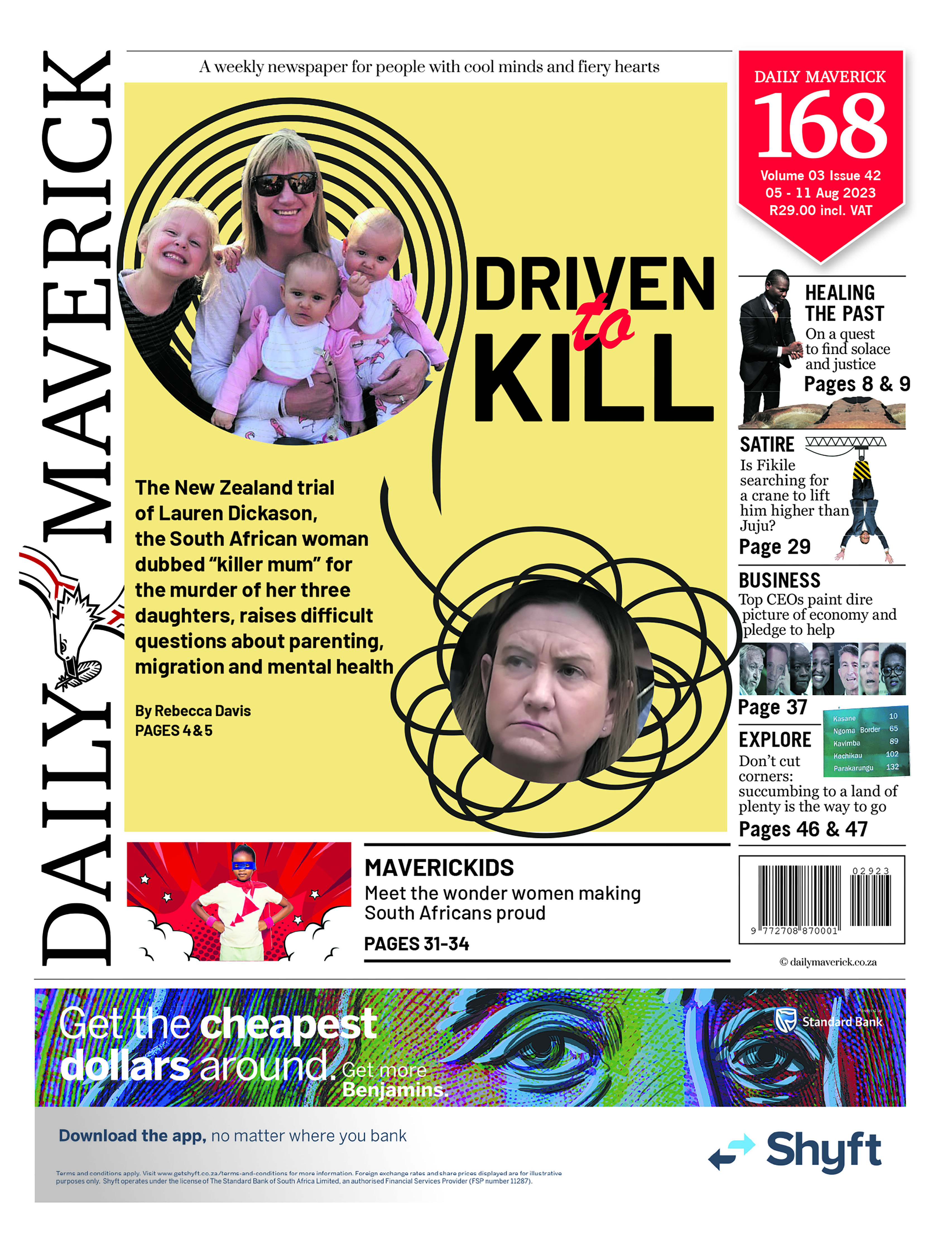







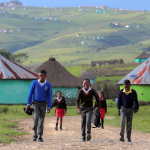












Comments - Please login in order to comment.